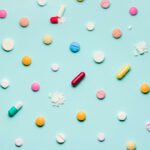The answer to “How many bottle of water should I drink a day” depends on various factors like your activity level and climate. Generally, aim for 8-10 glasses, approximately 2 liters, daily. Hydration is essential for overall health and well-being, impacting everything from energy levels to mood. Remember, staying adequately hydrated can keep you feeling refreshed and focused throughout the day. So, grab that bottle of water and start sipping your way to better hydration today!
How Many Bottles of Water Should I Drink a Day
In our daily lives, water is essential for our bodies to function properly. But have you ever wondered how much water you should drink each day to stay healthy and hydrated? The answer might surprise you! In this article, we will explore the importance of staying hydrated, how to calculate your daily water intake, the benefits of drinking enough water, and some tips to help you reach your hydration goals.
The Importance of Staying Hydrated
Water plays a crucial role in maintaining overall health and well-being. Our bodies are made up of approximately 60% water, and every cell, tissue, and organ in our body needs water to function properly. Water helps regulate body temperature, aids in digestion, transports nutrients, and flushes out waste and toxins from our bodies.
When we don’t drink enough water, we can become dehydrated, which can lead to a range of health issues such as fatigue, headaches, dizziness, and even more serious complications in severe cases. By staying hydrated, we can improve our energy levels, maintain healthy skin, support our immune system, and boost our overall well-being.
Calculating Your Daily Water Intake
So, how much water should you drink each day? While the popular recommendation of drinking eight glasses of water a day is a good starting point, the amount of water you need can vary depending on various factors such as your age, weight, activity level, and climate.
A simple way to calculate your daily water intake is to divide your body weight (in pounds) by 2. The result is the number of ounces of water you should aim to drink each day. For example, if you weigh 120 pounds, you should drink at least 60 ounces of water daily.
Alternatively, you can use the “8×8” rule, which suggests drinking eight 8-ounce glasses of water a day. This equals about 2 liters, or half a gallon. However, keep in mind that individual water needs may vary, so it’s important to listen to your body and adjust your water intake accordingly.
The Benefits of Drinking Enough Water
Ensuring you drink an adequate amount of water each day comes with a myriad of benefits for your health. Here are some reasons why staying hydrated is crucial:
1. Improves Physical Performance
Drinking enough water can enhance physical performance by maintaining proper hydration levels, which is essential for optimal muscle function and endurance during exercise.
2. Supports Digestion
Water aids in digestion by breaking down food, absorbing nutrients, and preventing constipation. Staying hydrated can help maintain a healthy digestive system.
3. Boosts Skin Health
Proper hydration is key to healthy, glowing skin. Drinking enough water can help keep your skin moisturized, reduce signs of aging, and improve overall skin health.
4. Regulates Body Temperature
Water plays a vital role in regulating body temperature, especially during physical activity or in hot weather. Staying hydrated helps your body maintain a stable internal temperature.
5. Supports Kidney Function
The kidneys rely on an adequate intake of water to filter waste and toxins from the blood, producing urine for excretion. Drinking enough water can help prevent kidney stones and other kidney-related issues.
Tips for Reaching Your Hydration Goals
If you find it challenging to drink enough water throughout the day, here are some tips to help you stay hydrated:
1. Carry a Water Bottle
Keep a reusable water bottle with you wherever you go as a reminder to drink water regularly. Refill it throughout the day to track your intake.
2. Set Reminders
Use alarms or smartphone apps to set reminders to drink water at regular intervals. This can help you establish a drinking routine.
3. Flavor Your Water
If you find plain water boring, try infusing it with fruits, herbs, or a splash of juice for added flavor. This can make drinking water more enjoyable.
4. Monitor Your Urine Color
Keep an eye on the color of your urine. Ideally, it should be pale yellow. Dark yellow or amber-colored urine may indicate dehydration.
5. Eat Water-Rich Foods
Incorporate hydrating fruits and vegetables such as watermelon, cucumbers, and oranges into your diet to increase your overall water intake.
In conclusion, staying hydrated by drinking enough water each day is vital for your overall health and well-being. By understanding the importance of hydration, calculating your daily water intake, reaping the benefits of proper hydration, and implementing some practical tips to reach your hydration goals, you can ensure that you are adequately hydrated and functioning at your best.
Remember, the amount of water you need may vary based on individual factors, so listen to your body and adjust your water intake as needed. By making hydration a priority, you can enjoy the numerous benefits of drinking enough water and maintain optimal health in the long run. Stay hydrated, stay healthy!
Frequently Asked Questions
How much water should I drink in a day?
It is generally recommended to drink about eight 8-ounce glasses of water a day, which equals about 2 liters or half a gallon. However, individual water needs can vary based on factors such as age, weight, activity level, and climate. It’s important to listen to your body and drink water whenever you feel thirsty.
What are the signs of dehydration that indicate I need to drink more water?
Signs of dehydration include dark yellow urine, dry mouth, headache, fatigue, and dizziness. If you experience any of these symptoms, it’s important to increase your water intake to stay properly hydrated.
Can drinking too much water be harmful?
While it’s important to stay hydrated, drinking excessive amounts of water can lead to a condition called water intoxication or hyponatremia. This occurs when the balance of electrolytes in your body is disrupted due to excess water consumption. To avoid this, it’s best to stick to moderate and balanced water intake levels.
Final Thoughts
In conclusion, the question of how many bottles of water one should drink a day depends on various factors such as age, weight, and activity level. While the standard recommendation is to drink at least 8 glasses or 2 liters of water per day, some individuals may need more. Monitoring your body’s thirst signals and adjusting your water intake accordingly is key to staying hydrated. Remember, listening to your body’s needs is crucial in determining how many bottles of water you should drink a day.















